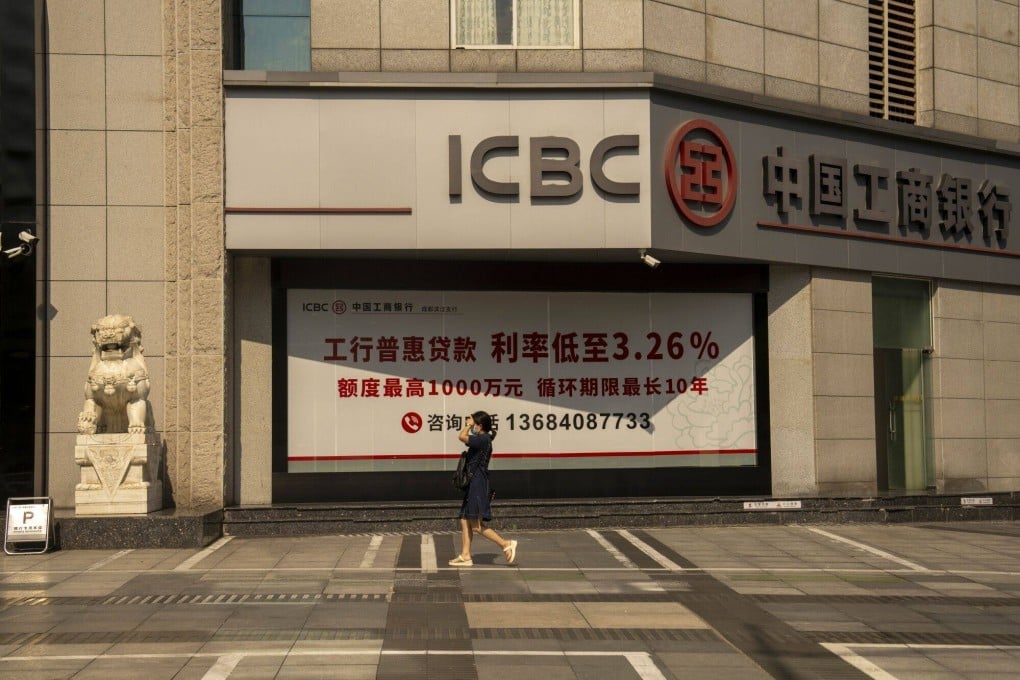China weighs injecting US$142 billion of capital into top banks
Funding for the first such intervention since the 2008 financial crisis would mainly come from new special sovereign bonds, sources say

China is considering injecting up to 1 trillion yuan (US$142 billion) of capital into its biggest state banks to increase their capacity to support the struggling economy, according to people familiar with the matter.
China’s six largest state-owned lenders – the Industrial and Commercial Bank of China, China Construction Bank, Agricultural Bank of China, Bank of China, Bank of Communications, and Postal Savings Bank of China – could each receive an injection of 100 billion yuan, a source familiar with the matter told the Post.
The funding would mainly come from the issuance of new special sovereign bonds, the people said, asking not to be identified discussing a private matter. The details have yet to be finalised and are subject to change, the people said. Such a move would be the first time since the global financial crisis that Beijing has injected capital into its big banks.
China is rushing to replenish its banks – even though the top six have capital levels that far exceed requirements – after unveiling broad reductions to mortgage rates and slashing key policy rates in an effort to revive the economy. Enlisted to support the economy over the past years, lenders like ICBC and Bank of China are now battling record low margins, sinking profits and rising bad debt.
Li Yunze, the nation’s top banking regulator, said earlier this week that authorities would act to increase core tier 1 capital at its six major commercial banks, without elaborating. The National Financial Regulatory Administration did not respond to a request for comment.
China’s mega banks have been under increasing pressure from regulators to shore up the struggling economy by offering cheaper loans to risky borrowers – from real estate developers and homeowners to cash-strapped local government financing vehicles. Most recently, some of the lenders heeded government calls to pay their first ever interim dividends to support the stock market, even as profit growth and margins are sliding.
Funding now is favourable for the government. In May, China kicked off another planned issuance of 1 trillion yuan in ultra-long special sovereign bonds; it would like to wrap up the sales in mid-November. The latest auction saw a 30-year bond sold at an average yield of 2.19 per cent, a record low based on Bloomberg data from past issuances of the tenor that dates back to 2007.
